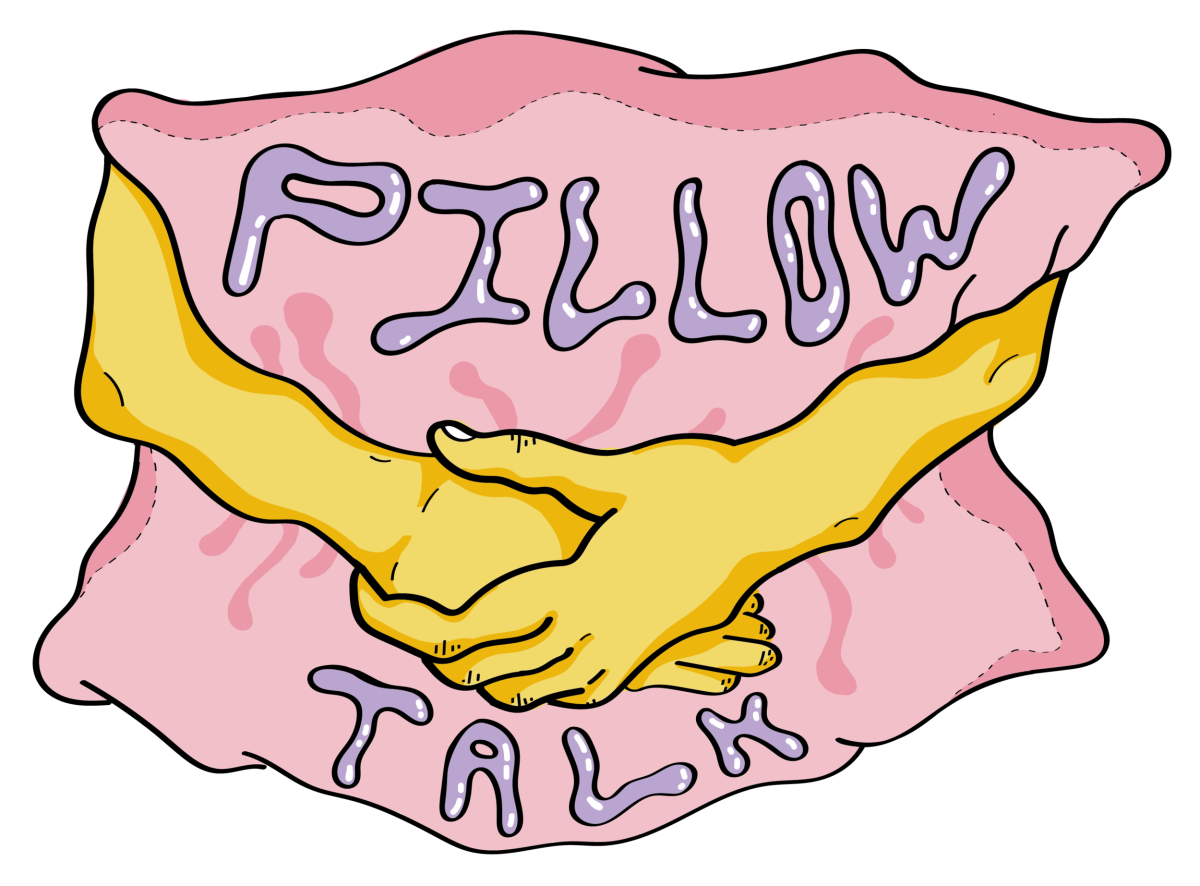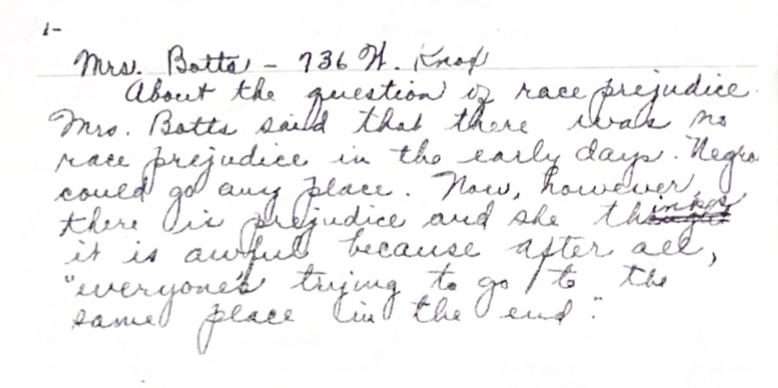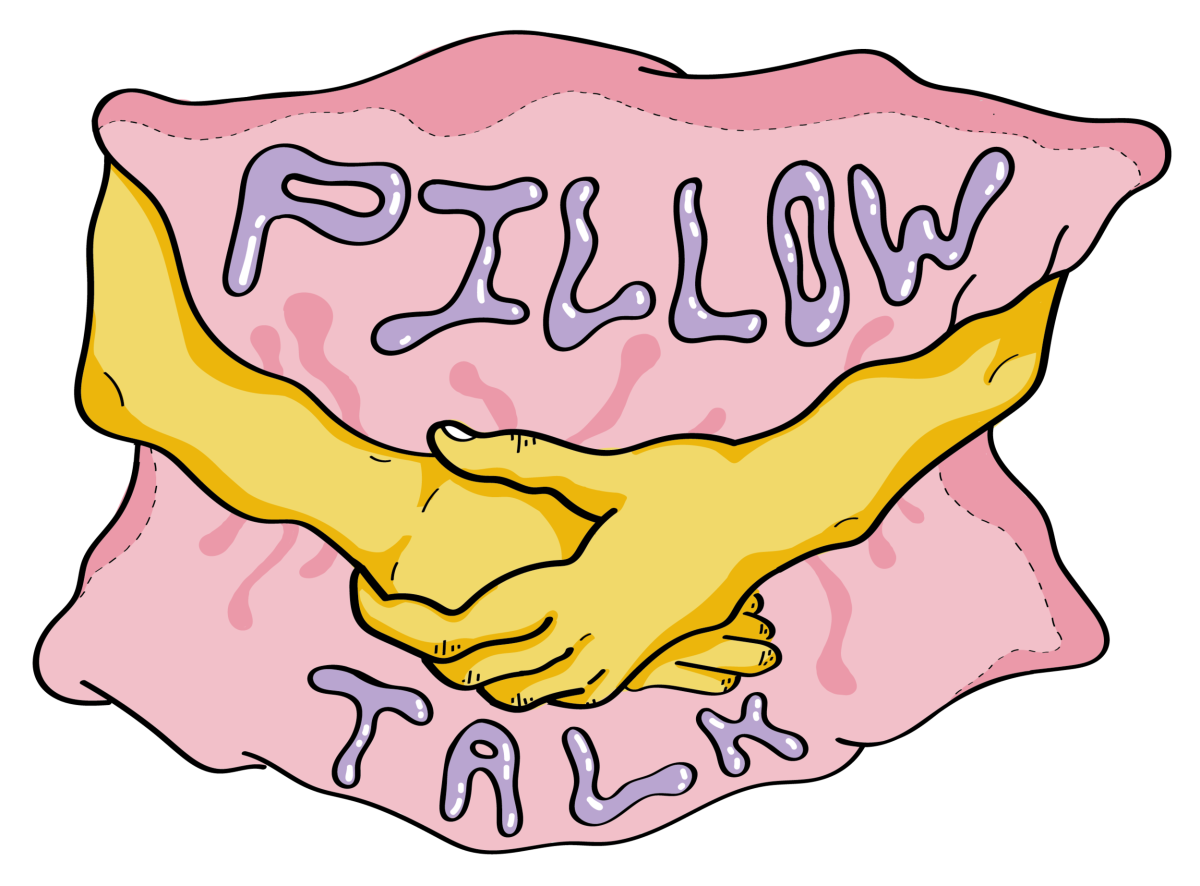This article includes discussion of trauma, sexual assault and abuse.
Pillowtalk,
Do you have any advice for navigating the sex aspect of a relationship when both you and the partner are previous victims of sexual assault/abuse? Especially navigating the feelings around “I think I might actually want to [insert sex act here] in this moment, but it’s also bringing up a lot of old feelings that are making me feel at risk of being retraumatized”… if that makes any sense.
Yes, that makes sense. I’m going to address this in 3 parts: things you can do for yourself, things you can do for each other and things you can do in the moment. I want to start, though, by saying a few things. First, thank you for asking this question, and know you are not alone. Second, no advice column can replace therapy and counseling (as you well know), and all of the things I suggest will be made easier with a mental health professional by your side.
No matter what relationship issue you’re dealing with, you always have to start at the level of the self. Do you know your triggers? Do you know what helps you in a panic attack or flashback? Once you have a sense for both of these things, start to think about the situations you’ve found yourself in/expect to find yourself in where a certain sexual behavior starts to nudge at trauma. Would focusing on physical touch help? Would it help to be spoken to or otherwise kept present? Would you benefit from a mood change (changing the music, putting on a tv show, turning the lights on, changing location)?
Don’t worry — it’s okay not to know exactly how or why you’re being triggered or which environmental factors are influencing it, but consider the context of your life and environment. Be very fluent in your own trauma responses. Your partner also needs to be having these conversations with themself.
When it comes to helping each other, the key is always going to be communication, patience and understanding. In some ways, your trauma similarities are a strength in your sexual relationship: you are in a unique position to support and be supported by your partner.
You should never feel obligated to disclose more about your experiences than you’re comfortable with. However, your partner can only be responsible for the boundaries you communicate. This is where the self work you did earlier comes in. It’s time to talk to your partner. You should address potentially triggering stimuli, sex acts, phrases and tones, common signs that you may be having a flashback, potential ways they can help, things you might need and things to avoid. You should have a safeword specifically to indicate a trauma response (keep it separate from safewords for sex play/BDSM).
You should also go a little further in depth with a come down protocol. How/where do you need to recover and what tools do you need to do that?
It is also a good idea to eliminate your expectation of orgasm for your sexual encounters. Expectations can foster guilt and resentment when they are not met, and neither of those emotions are welcome in spaces focused on compassion and care.
In terms of immediate actions you can take in the situation: follow your procedures and use your safeword. If necessary, troubleshoot as best you can using what you know. It’s good to be able to know when you’re close to the edge. Once you feel it, take action immediately. This doesn’t mean stop the sexual activity altogether (though it can!), but rather, how do you need to change the situation? If you don’t want to change the activity, maybe change the positions or role. If you don’t want to change the role or the context, try changing the activity or background sounds. Try focusing on either your breathing, a part of your partner’s body or on a particular sensation.
If all else fails, stop, recover and then consider what happened. Discuss what helped and what didn’t with yourself and your partner. Try to identify triggers and assess the techniques you or your partner used to regulate and come down. Make a plan for next time and talk about it with each other. Be patient, kind and loving to yourself and to your partner. Know that this is a long term process, and be proud that you’ve come this far.
Have a question for Elleri?
Send it to to http://bit.ly/2LZTHeY
or scan our QR code here!



















